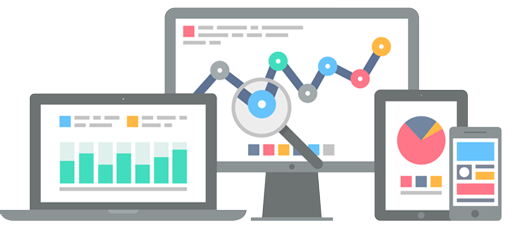A brief Introduction to Data Analytics
We’re all getting a buzz about Data Science and Analytics these days. It has ended up being like a hip, you know. Starting with frequently used terms that are being a part of the corporate world; Business Analytics, Business Intelligence, Data Analytics and Data science. And if you are looking for a shift in your career, you have to come across these terms. Very Often. It's not important for us to get into a debate as to how these vary but for a starter there is a good overlap So, there is a starting point and when you develop your career in a particular direction, you can become more specific about what you want to pursue but just for a quick introduction’s sake, let’s delve into them.

Business Analytics is the use of analytics focused to business for making decisions primarily for managers or stakeholders in the business. Data Analytics is an overarching term which you can say supersedes the scenario of business and goes into the field of healthcare but could go into a customer research, could go into education. So, Data analytics is overall term and business analytics can be a subset of it. Business Intelligence is a mix of analytics and a lot of analysis which might come from your understanding of the processes and the way your processes flow, so this is more to do with analytics and your competence in the subject matter.
Data science is, I would say, the vastest term among all and it's very popular these days. It is a mix of multiple skills and we'll talk about that as we move on. later parallel in these terms Data science is a multi-disciplinary field which use scientific methods, processes, algorithms and systems to extract knowledge and insights from structured and unstructured data. Big Data, another term that is being used very frequently by people in the field of data science. So, what is a big data? Let me put it in Templeton's any data that's beyond your system’s capacity to process; could be a big data for your system. When we talk about big data, there is a large volume of data that's getting stored and there are variety of data so it's getting generated to multiple sources. The data may not be in a given specific file format or structure all the time and could be from ‘n' number of resources and there is something to do with the veracity of the data that's been captured. So big data is more technical and technical owing to the aspects associated with its storage and the processing speed so, the underlying techniques to work on the big data and approach from the analytic side of it would be the same but yes there are certain technical elements that get associated with what the burden is that people are talking about.
Also Read: Data Scientist, Data Science overview
In 2018 Gartner said, "Data and analytics can't be ignored, it’s 2018. Analytics will drive major innovation and disrupt established business models in the coming years. Technical professionals need to adapt and adopt their data and analytics architecture from end to end to meet the demand of analytics everywhere.” McKinsey stated, “There will be a shortage of talent necessary for organizations to take advantage of big data by 2018. The United States alone could face a shortage of 140,000 to 190,000 people with deep analytic skills as well as 1.5 million managers and analysts with the know-how to use the analysis of big data to make effective decisions”.
Now these are some reported names in the field of consultation and research and they feel that there is going to be a change in the way the businesses have been operating so far. Of course, the businesses will need to hire for the right skill set and a shortage of the right manpower in the industry is anticipated. In fact, if we talk about Harvard Business Review, Data Analytics is called out as the sexiest job of the 21st century.
Thence, this is going to there for a very long time. Those who have not yet taken their first step in this filed should definitely consider doing that.
Also Read: Fact about Data Science that Every Beginner must Know
Also Read: ROAD MAP TO BECOME A DATA SCIENTIST
Also Read: What we can do with ML.NET 0.8? What is ML.NET?
Also Read: Data Scientist, Data Science overview
